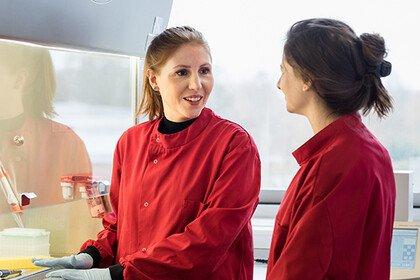How we influence and inform policy
By influencing and informing policy, we can help to create the conditions for science to thrive globally and so improve human health.
We work with researchers and a wide range of partners around the world, including governments, research funders, non-governmental organisations, charities and commercial organisations.
Why it’s important
Our policy work leads discussions on big health challenges, such as how to improve the world’s ability to prepare for and respond to epidemics.
We also campaign for better science in areas like regulation, data sharing, and Brexit and the EU.
The research that we fund can have a direct impact on policy – for example, by informing guidelines from the World Health Organization (WHO) or the National Institute for Clinical Excellence (NICE).
What we’re doing
Advising on global health challenges
We advise on policies affecting global health problems, including:
- drug-resistant infections – we are leading policy discussions about how governments and industry can work together to increase antibiotic discovery and development, and have co-hosted two Call to Action events to help identify ways to tackle the problem internationally
- epidemics – we are championing a global system for epidemic preparedness so that there is a coordinated response to disease outbreaks like Ebola and Nipah
- climate change – we make sure that health is included in international negotiations, such as COP21, and building understanding of the complex links between the environment and human health through Our Planet, Our Health
- access to healthcare interventions – we are encouraging cross-sector discussions on what does and doesn’t work in improving access, including financing, regulation, incentives for innovation and political leadership, and are focusing on initiatives that will benefit people in low- and middle-income countries.
Campaigning for better science
To support research, we:
- aim to improve how research is done – we advocate for better practices and promote a more positive research culture
- inform the UK government’s plans for science and innovation, promoting research careers and championing investment in cutting-edge science facilities and equipment
- campaign for full researcher mobility post-Brexit, so that scientists, technicians and their families can easily come to live and work in the UK
- work to influence research legislation to make sure it’s proportionate, safe and effective
- encourage an effective environment for the adoption of innovative ideas
- support schools and teachers to deliver inspiring, high-quality science education which is available to all young people.
Supporting researchers
From drug-resistant infections to vaccines to climate change, we want to generate and support strong evidence for action, so that policymakers, businesses and the public can make more informed decisions.
The work of the researchers we fund can influence policy guidelines.
- The global WOMAN trial, which we co-funded, showed that tranexamic acid (TXA) can prevent almost one in three maternal deaths caused by severe bleeding if it’s given within three hours of birth. The WHO now strongly recommends early use of TXA in women who haemorrhage after they’ve given birth as part of standard care.
- We provided long-term funding to establish and support researchers at the Wellcome Trust Centre for Mitochondrial Research who pioneered the mitochondrial donation technique. We’ve driven legislative change to ensure this cutting-edge technique can be used in clinics for the benefit of patients.
Find out about the funding we offer and other ways we support careers in research.
Reports and consultations
More reports
Read our policy reports and response to major consultations.




